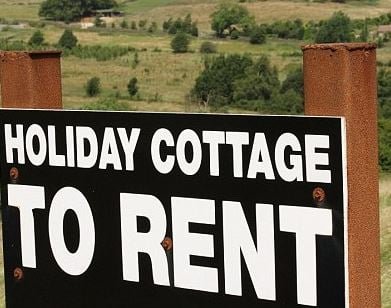The changes in Serviced Accommodation will impact different people in different ways. To some, it will provide an advantage, for others it will be time for change.
The changes are threefold:
1) Removal of FHL means the income for those who own in personal name will be treated identically to buy-to-let income for tax purposes.
2) Those that wish to change use to serviced accommodation in the future will require planning permission. In some areas this will be automatic under permitted development rights, in other areas it will require a successful full application. Existing operators will be automatically granted permission
3) All units will need to be registered with local authorities. This probably will be similar to HMO licensing. It could result in costs to bring properties up to H&S compliance levels. It probably will involve the need to inform the lender.
So how will this affect people?
Adam owns three properties that used to be buy-to-lets. After section 24 was imposed his profits took a dive. When a tenant stopped paying rent he made a loss. After a stressful couple of years he emptied the properties, spent some money on refurbishment and contracted with Steph who operates a R2SA business. Adam has enjoyed hands-free income since, though it is variable and in total not quite as good as the heydays before S24. He knows though that Steph is doing the work and if he wanted to sweat more income he could do it himself. He is on normal BTL mortgages with TMW and faces the end of a favourable rate in the future.
What will Adam do?
Get out before 5th April 2025! He has vacant possession and properties in good order. He may benefit from the 10% BADR if he sells in time. He will call a few high street agents to appraise the properties for sale to an owner occupier
He will receive a few letters from people who are buying any SA on the market and will agree a deal in 48 hours. He will be tempted until he receives the offer price.
The standard housing market will gain three properties. The rental sector will not gain or lose.
Brianâs position varies slightly from Adamâs in that he jointly owns his properties with his wife, Mary, and obtained a partnership UTR five years ago. Brian is employed and Mary runs the SA business and is regularly helping the cleaner with changeovers.
Brian and Mary have an opportunity. Mary is vested in the business and doesnât want to give up her vocation.
A mortgage broker has offered them a Ltd company mortgage on the properties. They can transfer their business to a limited company without CGT or SDLT costs and replace the mortgages. They can then handle the compliance issues of registration and continue operation. They will keep a close eye on the listings to see if supply drops. The opportunity is to increase rates and occupancy due to reduced supply.
Chrisâs position varies from Adam in that he owns his properties without mortgages. Steph is seeing lots of owners pull their properties from her and is ensconced in contractual disputes with them. In desperation to retain stock she agrees on a five-year deal with Chris which is more favorable to Chris than the previous arrangements. She also agrees to help Chris with the new compliance documentation. Chris sits back and pulls out a cigar, he considers the quarter of a million he has in liquid funds and wonders if he should write some letters.
Dianneâs position is the same as Adam except that she purchased the properties in a LTD company. She retains her TMW mortgages and value gains have generated a LTV of 50%.
She sees the opportunity ahead and picks up the phone to her mortgage broker. She asks about SA compliant mortgages. Her options are to refinance them all or sell one and use some cash to redeem the mortgages on the other two.
Paul is a trainer who has gained the love and respect of hundreds of alumni. He knows they will do what he tells them and that includes giving him money. He sees a big opportunity and is furiously rewriting his course notes. He has his trainees scouring the ABNB listings and compiling target lists. A £3 LR download (funded by trainees) will tell him who owns in personal name with a mortgage. Letters are being prepared to purchase these properties. He will make silly offers and agree deals on operating SAs. These will be sourced onto other trainees who are told to establish more limited companies (his accountant pays him a healthy introduction fee)
He has his mortgage broker lined up to offer SA compliant mortgages and pay him more introduction fees. The trainees write the letters and send them out proudly posting Facebook pictures of the letters going into a post box.
The one that wrote to Adam was disappointed that Adam sold via an estate agent, but Paul consoles him with some further training on his mastermind course.
Never a dull day in property!




